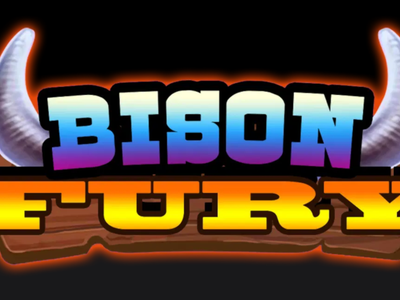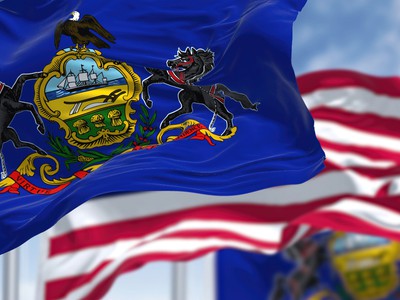The Wolf administration continues to monitor how the expansion of online gaming in recent years has affected the gaming industry and Pennsylvania residents and continues to review the agreement.
Pennsylvania Governor Tom Wolf is considering whether the Keystone State should follow Michigan’s lead and join the Multi-State Internet Gaming Agreement (MSIGA) for online poker, according to a key member of the Democratic governor’s staff.
“The Wolf administration continues to monitor how the expansion of online gaming in recent years has affected the gaming industry and Pennsylvania residents and continues to review the agreement,” Press Secretary Elizabeth Rementer told Pennsylvania Gaming Review on Thursday.
It is unclear what entities of the state government are involved in reviewing the MSIGA — Rementer did not return a message seeking clarification or offering a timeline for how long the review is expected to take. But the state’s gaming regulator said Wolf has the final say on whether Pennsylvania ultimately requests to join the MSIGA.
“The matter currently does not reside with us but with the Governor’s office, which would need to sign off on any multi-state contract,” said Doug Harbach, spokesman for the Pennsylvania Gaming Control Board (PGCB).
- $150 no deposit bonus
- Best MTT action
- Cash game variety
Huge Changes to Poker Landscape in Just Three Weeks
The news that Pennsylvania is considering joining the interstate gaming compact — which will soon have four member states — is just the latest in a series of fast-moving developments involving online poker in North America.
Three weeks ago, on March 16, the Michigan Gaming Control Board (MGCB) posted online guidance spelling out steps poker operators in that state would need to take before Michigan joins an interstate gaming compact.
One week later, the manager of the MSIGA said the compact was reviewing a request from Michigan to join. A spokesman for the Nevada Gaming Control Board (NGCB) confirmed the same. Michigan’s application was reportedly reviewed by officials in Delaware, Nevada, and New Jersey.
WSOP MI altered the online poker landscape even further when it finally launched in Michigan on March 28. The launch created a similar market dynamic to Pennsylvania, where WSOP PA competes with rivals BetMGM Poker PA and PokerStars PA for customers.
On Monday, a segregated online poker market opened in Ontario. 888poker launched on the market’s opening day, becoming the first official regulated online poker room in Ontario, and BetMGM Poker Ontario followed a day later. PokerStars and GGPoker are in the process of obtaining licenses to enter the Ontario regulated market. They are also being allowed to continue offering poker in the grey market through their global licenses while their license applications are being processed.
A source told Pennsylvania Gaming Review on Tuesday that it was “possible” that the MSIGA could be modified to allow Ontario to join, but added “it’s too early” to speculate on such a move. The source also conceded that it would require several meetings between the various regulators to hammer out an agreement.
However, Rebecca Satterfield, iGaming Manager for the Delaware State Lottery and the current Manager for MSIGA, said Ontario could not join the compact.
MSIGA announced that Michigan had been admitted to the compact on Wednesday, “pending full execution of the agreement by the State of Michigan.” That is understood to be just a formality and will likely center on Michigan Governor Gretchen Whitmer signing the agreement.
- $150 no deposit bonus
- Best MTT action
- Cash game variety
Where Could Interstate Online Poker Go From Here?
Besides Pennsylvania, two other states with legal, regulated online poker — Connecticut and West Virginia — are frequently mentioned as additional states that could join the MSIGA, but the ascension of either state to the compact has its challenges.
For starters, both states have small populations, meaning that their contributions to shared liquidity through the MSIGA would be limited — Connecticut has about 3.6 million people, while West Virginia has about 1.8 million. They are ranked as the 29th and 40th states in terms of population, respectively.
Connecticut legalized online poker last May 2021, but the gaming regimen brought into force does not contain verbiage that would allow the Constitution State to join an interstate gaming compact like the MSIGA. Also, neither of the two operators paired with tribal casinos in the state — DraftKings and FanDuel — utilize a poker platform.
Kaitlyn Krasselt, Communications Director for the Connecticut Department of Consumer Protection (CDCP), said current state law prohibits the state’s two tribal casinos from having separate operators per vertical — effectively nixing the idea that PokerStars could offer poker through an agreement with FanDuel since both are Flutter subsidiaries.
Krasselt also said the agency “has no immediate plans to join [MSIGA] but is always considering ways to collaborate with other state regulators.”
Meanwhile, the West Virginia Lottery Commission (WVLC) revealed last summer that joining a interstate compact for West Virginia online poker was being considered. WVLC did not return a request for comment after news broke that Michigan was joining the MSIGA.
West Virginia doesn’t currently have any poker operators deployed in the state. That should change if the Mountain State joins the interstate gaming compact.
Check out our PA Online Poker Reviews to check for the latest Pennsylvania online poker deposit bonus deals and learn about our top picks for best poker rooms in the state!







